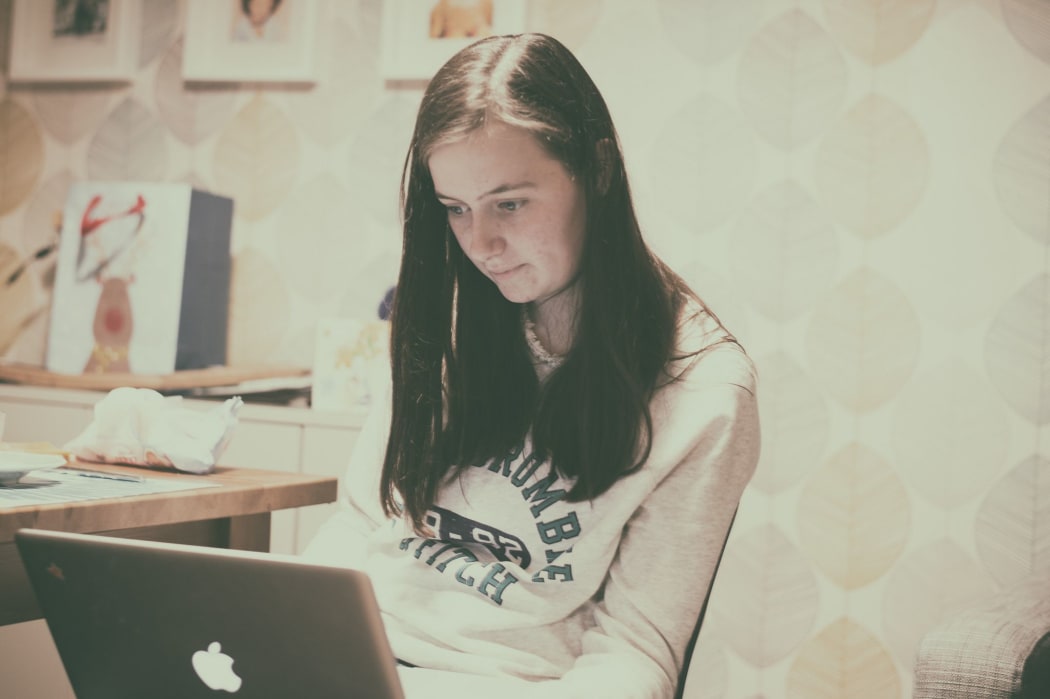
Photo: Alistair Thacker / CC BY-NC-ND 2.0
An estimated 90,000 New Zealanders aged 15 to 24 are not in education, training or employment.
How can we support young people who leave school without NCEA qualifications return to education a bit later?
Former director of the teen parent schooling unit Karanga Mai and head of school foundation and bridging at the Open Polytechnic, Lynn Brice talks about what works.
Brice was an early school-leaver herself, leaving at 15 to work in a shoe shop.
“I knew everything that I would ever need to know at that point. And I was also quite rebellious and I got a little bit tired of wearing a school uniform, being told what to do, where to go, all of that kind of stuff. I just wanted to get on with the life and be a grown-up.”
A couple of months later, she was surprised to see her male science teacher in the ladies department of the shop.
“He just leaned over the counter and he said to me ‘Lynn, you need to come back to school. You should be a teacher’. I said ‘Well, thanks but no thanks. I’m quite happy here. I’m earning $20 a week’.”
A seed was planted, but it took another 15 years before she went back to education, starting her first degree around the same time that she became a mother.
“Thanks to Mr McCaw. He was right.”
There are two broad reasons why people drop out of school or leave quite young – they don't have an identity as a learner and they feel disconnected from the learning environment, Brice says.
What people believe about their ability to learn is formed over multiple experiences, relationships and the messages they're given early on and often becomes part of their self-image.
“Many of the people I speak to say ‘Oh, I thought I was dumb’ or ‘They called us the cabbages’ or something like that.”
The risk of people getting disconnected or estranged from the learning environment is greater at times of transition such as the move from primary school (where you have one homeroom teacher) to secondary school where you’re into a completely new peer group and don’t have a teacher to bond with anymore, Brice says.
“You’re moving from class to class to class, and if you don’t click with a peer group, if you don’t click with teachers, then you lose a sense of connection. It’s very easy for those people to slip away, too.”
Having a child can be a good motivator for young people to return to their education, says Brice.
“They want to show their child they’ve done this and be proud of it.”
Two generations getting educated in one place is a special thing, she says.
“That’s a lovely thing to see a young mum drop a child off and say ‘I’m just off to school now. I’ll see you at lunchtime’. That’s a very normal way for a child to see his or her mother behaving and getting on in life.”
Karanga Mai is one of 24 teen parent units around New Zealand.
To provide new students a safe passage into learning again, Karanga Mai matches them with peer mentors and has older students write letters to the new ones telling them how they felt when they first came in.
“They just tell them the story of where they’d come from, their own feelings of anxiety when they’d come in as a new person, what they wish they’d been told when they first came in and where they were and how they felt now.”
Older teenagers who may feel embarrassed about returning to a classroom with younger teens have more options than they think, Brice says.
“If you stopped at 15 or 16, if you didn’t finish NCEA Level 1, there are many options that recognise actually you have been learning in that interim and we can contextualise your learning with where you are now and pick you up at that point.”
Distance learning programs can be a less intimidating way to go.
“They can study in their home or with a community of learners from their own whanau, alongside support from a distance provider.”
When it comes time to look for work, employers respect the courage demonstrated by people who've return to learning, Brice says.
“To actually do it, to make that step and go back, to complete that qualification and then to be able to show that to an employer, they carry a changed identity into that situation, they carry a pride rather than a shame or a lesser feeling than pride into that situation and employers will recognise that.”
That one in four New Zealanders between 15 to 24 aren’t engaged in a meaningful, purposeful way in their own lives is worrying not only for them and their families but for communities, society and the economy, Brice says.
“People want to participate, people want to contribute, but they’ve formed a number of barriers to that and a lot of it is through that identity, what they believe about themselves.
“The people that I speak to, the stories that I collect, many people say not just ‘This changed my life’, but ‘This saved my life’.
“They feel worthless from school, they’ve taken that into life. They don’t have a qualification so they can't get a job, so then they begin to feel very depressed. And coming back to education, making that decision, is extraordinarily powerful, transformational and in many cases life-saving.”

